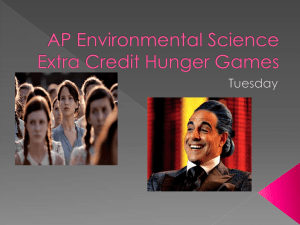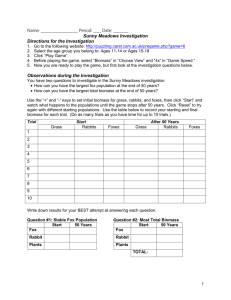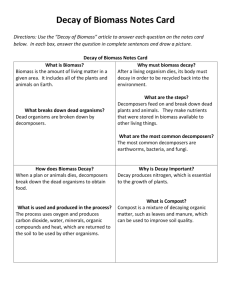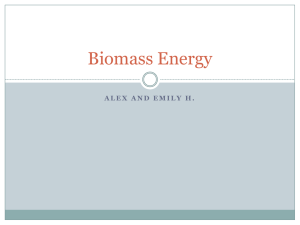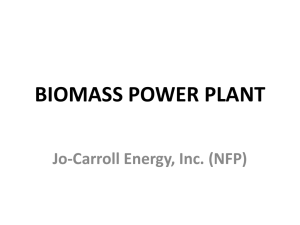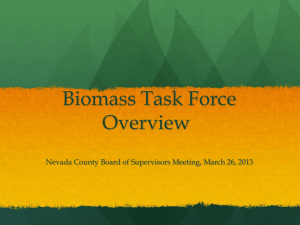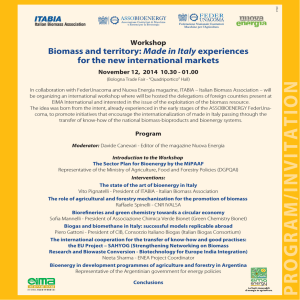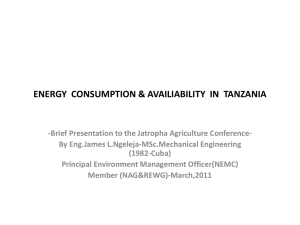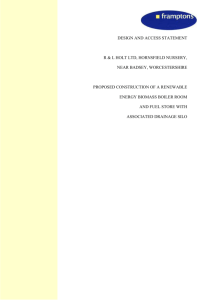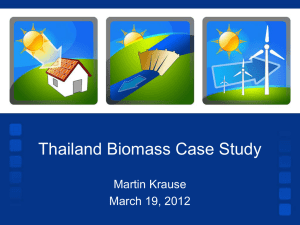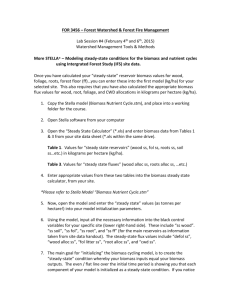File
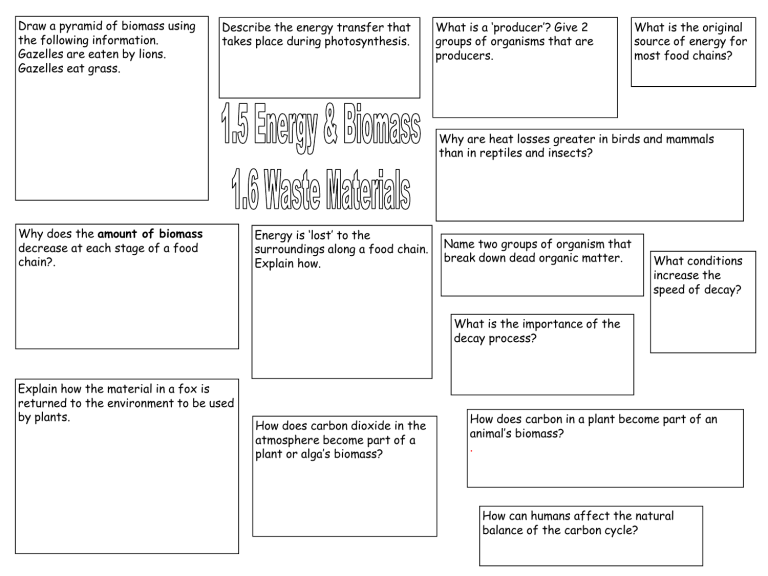
Draw a pyramid of biomass using the following information.
Gazelles are eaten by lions.
Gazelles eat grass.
Describe the energy transfer that takes place during photosynthesis.
What is a ‘producer’? Give 2 groups of organisms that are producers.
What is the original source of energy for most food chains?
Why are heat losses greater in birds and mammals than in reptiles and insects?
Why does the amount of biomass decrease at each stage of a food chain?.
Energy is ‘lost’ to the surroundings along a food chain.
Explain how.
Name two groups of organism that break down dead organic matter.
What conditions increase the speed of decay?
What is the importance of the decay process?
Explain how the material in a fox is returned to the environment to be used by plants.
How does carbon dioxide in the atmosphere become part of a plant or alga’s biomass?
.
How does carbon in a plant become part of an animal’s biomass?
How can humans affect the natural balance of the carbon cycle?
Draw a pyramid of biomass using the following information.
Gazelles are eaten by lions.
Gazelles eat grass.
•
•
1 mark shape
1 mark labels
Why does the amount of biomass decrease at each stage of a food chain?.
• CO
2 is lost in respiration
• Parts of an organism may be inedible
• Biomass is lost in faeces and urine
• Some organisms die and are eaten by microbes instead
Explain how the material in a fox is returned to the environment to be used by plants.
• Fox respires – releases CO
2 for use in photosynthesis
• Fox dies – broken down by microoganisms and detrivores
• Decomposers respire to release CO
2 for use in photosynthesis
• Nutrients also released into the soil
– absorbed by plant roots
Describe the energy transfer that takes place during photosynthesis.
Light energy from sun converted to chemical energy in plant / algal cells
What is a ‘producer’? Give 2 groups of organisms that are producers.
• Organism that makes its own food
• Green plants
• Algae
What is the original source of energy for most food chains?
The sun
Why are heat losses greater in birds and mammals than in reptiles and insects?
Birds and mammals are warm blooded so have greater respiratory rates to release heat to keep them warm.
Reptiles and insects are cold blooded so keep warm by basking in the sun.
Energy is ‘lost’ to the surroundings along a food chain.
Explain how.
• Heat energy released in respiration
• Faeces and urine
• Used in repair processes
• Organism dies and energy passes to microbes
• Used in movement
Name two groups of organism that break down dead organic matter.
• Microorganisms
• Detrivores
What is the importance of the decay process?
Allows nutrient to be recycled – releases substances that plants need to grow.
What conditions increase the speed of decay?
Warm
Moist
Aerobic
How does carbon dioxide in the atmosphere become part of a plant or alga’s biomass?
Photosynthesis converts it into glucose which can then be turned into other carbohydrates, fats and proteins
How does carbon in a plant become part of an animal’s biomass?
Animals eat the plants – carbon becomes part of fats and proteins.
How can humans affect the natural balance of the carbon cycle?
Combustion of fossil fuels releases CO
2
